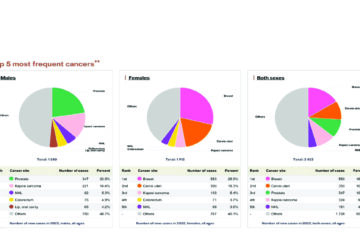Justicia Shipena
The ministry of health and social services has declared a cholera outbreak in the Opuwo District of the Kunene Region following confirmation of locally transmitted cases.
Health minister, Dr Esperance Luvindao, made the announcement on Thursday during a media briefing in Windhoek.
She said eight suspected cases had been reported as of 18 June 2025.
Six of these, including one death, are from the same household.
Two other suspected cases were identified in Opuwo and Otjimuhaka village.
Preliminary tests for those two came back negative.
Confirmatory tests for the first two cases were conducted by the National Institute for Communicable Diseases in South Africa.
The results confirmed the presence of Vibrio cholerae 01, the bacteria that cause cholera.
“Obtaining from these confirmed findings, I thus today officially declare a cholera outbreak in Opuwo District,” said Luvindao.
She said that under World Health Organisation standards, even one locally transmitted confirmed case qualifies as an outbreak.
The first four cases, three of them children, were admitted to Opuwo District Hospital with symptoms consistent with cholera.
One patient died from severe dehydration. The remaining five are being treated in an isolation ward and are in stable condition.
Cholera is a waterborne disease that spreads through contaminated water or food.
It can cause severe diarrhoea and dehydration, and if not treated quickly, can lead to death.
The ministry has activated an incident management system to coordinate a national response.
Rapid response teams have been deployed to affected areas.
Other measures include strengthening disease surveillance and laboratory testing, community engagement, and public health education.
“We are gaining practical insight into what works in the region,” said Luvindao.
She stressed the importance of a “whole-of-government and whole-of-society” response to stop the outbreak.
Efforts are underway to improve water quality through chlorination and other safe water supply measures.
The ministry has also established Oral Rehydration Points and Cholera Treatment Units to provide immediate care and manage the spread of the disease.
Luvindao urged the public to drink only treated or boiled water, wash hands regularly with soap and clean water, and avoid eating food from unsafe sources.
She encouraged anyone experiencing watery diarrhoea or vomiting to seek immediate medical attention and start taking oral rehydration solutions.
She called on all sectors, including government, civil society, and local leaders, to help ensure access to clean water and sanitation.
“Together, through coordinated efforts and responsible actions, we can control and end this outbreak,” said Luvindao.




